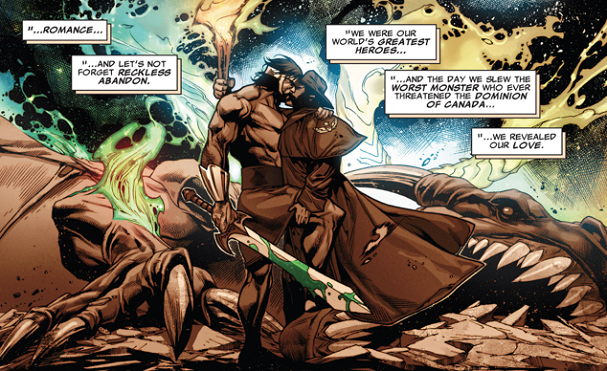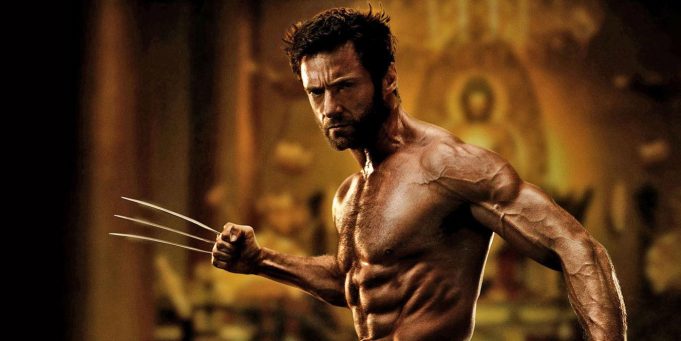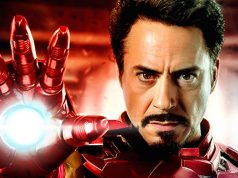People often talk about how the piece of sh*t, sorry excuse for a movie titled Batman & Robin almost killed the comic book movie genre in 1997. People also often talk about how 8 years after Joel Schumacher’s abomination, Christopher Nolan revitalised the genre with Batman Begins. And of course, there can be no discussion about comic book movies without mentioning The Dark Knight – a comic book movie that would forever change the landscape of the Academy Awards and one of my favourite films of all time – and Iron Man – a comic book movie that kickstarted a universe that changed the ways studio executives think #Nomorestandalonemovies. But what nobody really talks about is a franchise that Bryan Singer brought to life in the year 2000. A franchise that told the world, “Hey! There is a place for comic book movies in the modern era of film.” If you haven’t already guessed, I’m talking about X-Men.
But today’s story has got nothing to do with the X-Men franchise giving mouth-to-mouth to a dying genre. I just figured it’s interesting how people always skip X-Men and go straight to Batman Begins/The Dark Knight/Iron Man when discussing said topic. No, today’s story is about the X-Men film franchise being more than just your standard entertainment vehicle. In fact, a lot of comic book movies come with a plethora of underlying themes and ideologies worth studying. Yeah, I probably just lost half my readers when I used “comic book movies” and “STUDY” in the same sentence.
But for those of you who are still here, what if I told you, the X-Men movies isn’t just about one gang of superpowered mutants taking down another gang of superpowered mutants? What if I told you, that these movies stand for something much more important?
What if…
Wolverine is gay!

Heck, every single mutant in the X-Men franchise is gay. No, I’m not effing mental. The last time I checked, anyway.
In an interview conducted with Buzzfeed Brews, Ian McKellen AKA Magneto said that the main reason he agreed to act in the X-Men franchise is because director Bryan Singer told him that the X-Men were not just ordinary superheroes, but rather, like members of the LGBT community.
I was sold it by Bryan who said, Mutants are like gays. They’re cast out by society for no good reason. And, as in all civil rights movements, they have to decide: Are they going to take the Xavier line — which is to somehow assimilate and stand up for yourself and be proud of what you are, but get on with everybody — or are you going to take the alternative view — which is, if necessary, use violence to stand up for your own rights. And that’s true. I’ve come across that division within the gay rights movement.
Okay, I’ll come clean. Wolverine doesn’t actually get a boner when he sees other men naked (as far as I know). However, he and the other mutants in the X-Men film franchise are a METAPHOR for real-world LGBT.
Don’t believe me? Okay. Let’s analyse the crap out of this franchise.
Note: I will be focusing specifically on X2: X-Men United, X-Men: The Last Stand and X-Men: First Class.
On “curing” the mutant “problem”
In a scene in X-Men: First Class, a teenage Mystique has a conversation with fellow mutant, Beast.

Beast: I’d promised myself I’d find a cure ever since I was a little boy. You have no idea what I’d give to feel…
Beast and Mystique (together): Normal.
The dialogue above reflects what many members of the LGBT go through, especially during their younger days. They yearn to be normal, wondering if what they’re going through is something that can be cured. Can you blame them, though? After all, this line is actually written in the bible.
If a man lies with a male as with a woman, both of them have committed an abomination; they shall surely be put to death; their blood is upon them (Leviticus 20:13).
I have nothing against the Bible as a whole. But, Leviticus 20:13 is one of the stupidest things I’ve ever read in my life. And this is coming from a guy who spends most of his free time reading Pakalu Papito tweets. No offence. #Iheardsayingnooffencemakesitokaytosaysomethingoffensive
Midway through the film, another interesting exchange of dialogue takes place. At this point, Beast has supposedly formulated a cure. However, Mystique has slowly started to embrace her true self.

Beast: Do you still want to do this?
Mystique: Should we have to hide?
Beast: I don’t want to feel like a freak, all the time. I just want to look…
Mystique *disgruntled*: Normal. Hank don’t. You’re beautiful Hank. Everything you are, you are perfect. Look at all of us. Look at all we’ve achieved this week. All we will achieve. We are different. But, we shouldn’t be trying to fit into society. Society should aspire to be more like us. Mutant and proud!
If we take a closer look at the line of dialogue above, the word mutant can be substituted with the word gay/lesbian/bisexual/transgender. It is an obvious wink from the director and screenwriters.
The mutant “cure” is mentioned more prominently in X-Men: The Last Stand.
Beast: A major pharmaceutical company has developed a mutant antibody. A way to suppress the mutant X-gene.
Wolverine: Suppress?
Beast: Permanently. They’re calling it a cure.
Storm: Well, that’s ridiculous. You can’t cure being a mutant. Since when did we become a disease?
Immediately after that, we cut to a scene where a pharmaceutical company is giving a speech.

These so-called mutants are people just like us. Their affliction is nothing more than a disease. A corruption of healthy cellular activity. But I stand here today to tell you, that there’s hope. And this site – once the world’s most famous prison – will now be the source of freedom for all mutants who choose it. Ladies and gentlemen, I proudly present the answer to mutation. Finally, we have a cure.
Just like in X-Men: The Last Stand there are ignoramus idiots who believe that LGBT is a disease that can be cured. But as Storm mentions, you can’t cure being a mutant, because it’s not a disease. Similarly, you can’t cure being LGBT, because it’s not a disease either.
While there is no actual drug created that can alter a person’s sexual orientation, there is something called CONVERSION THERAPY – a psychological treatment aimed at altering one’s sexual orientation. This nonsensical bullcrap is a form of psychotherapy that is unrecognised by medical professionals worldwide. These treatments consist of shocking patients or providing them with drugs that cause nausea while showing the patients homosexual porno.
Just like the pharmaceutical company in the X-Men: The Last Stand, there are organisations in the real world that are dumbasses too. In the early months of 2016, the Indonesian Psychiatric Association stated that being transgender, gay, lesbian, bisexuals and any form of non-heterosexuals is a mental disorder that could have adverse effects on an individual. I’m also pretty damn sure that the Indonesian Psychiatric Association bought their license from a shady stall run by cocaine sniffing hooker.
On the bright side, just like Storm in the dialogue analysed above, there are many people, including professionals that discredit the notion of LGBT being a disease. The Medical and Psychological Associations in the United States of America has repeatedly rejected the idea of non-heterosexuality being a disease.
On the US military policy
Another ingenious and even humorous dialogue comes when Charles Xavier, Mystique and Magneto meet Beast for the very first time, in X-Men: First Class. Charles Xavier unknowingly lets slip that Beast is also a fellow mutant. Beast’s boss, who is a human is shocked and asks him why he didn’t inform anyone about it. Beast replies, “You didn’t ask, so I didn’t tell.”
Did you know that until recently, homosexual soldiers in the US were not allowed to disclose their sexual orientation? In 1993, under the Clinton administration a law titled DADT (Don’t Ask, Don’t Tell) was passed, which allowed homosexuals to serve in the military as long as they did not openly acknowledge their sexual orientation (‘Don’t ask, don’t tell’ ban on gays in US military ends, 2011). This policy was dropped in 2011 by who appears to be the only US president since 1993 with a brain, Barack Obama.
On being alone
While the mutants in the X-Men film franchise tend to feel like they’re alone, an exchange of dialogue between proves otherwise.

Professor X: Those lights represent every living person on the planet. The white lights are humans. And these (red lights) are the mutants. Through Cerebro, I’m connected to them, and they to me. You see Logan, we’re not as alone as you think.

Much like the thousands, possibly even millions, of mutants that exist in the X-Men franchise, members of the LGBT community are not alone too. In the real world, LGBT people more often than not feel like they’re alone too, as they do not receive support from friends nor family.
Let’s take a look at some stats (from the USA)
- 39% of people who have identified as LGBT were in one point of their lives or another, rejected by a close family member or friend solely because of their sexual orientation and gender identity.
- 21% say that they have been mistreated at their workplace.
- 29% claim that they have been marginalised in a place of worship.
- 30% even claimed to have been assaulted physically.
This feeling of loneliness and rejection has caused:
- 42% of young LGBT people depression.
- 52% of young LGBT people have resorted to self-harm
- 40% of young LGBT people have even considered suicide
However, the reality of the situation is, LGBT people are not alone. In a 2013 survey done in the US by National Bureau of Economic Research, it is estimated that around 20% of the American population are non-heterosexuals.
On repressing your sexuality

In the prologue of X-Men: The Last Stand, we see a young Angel in the bathroom. He tries his best to cut off his wings, with a look of pain, sorrow and confusion plastered on his face. It is a gut-wrenching moment. Angel’s father barges into the bathroom and is stunned. He’s shocked. But more importantly, he looks repulsed and disappointed.

Angel’s father: Oh God. Not you.
Angel: Dad, I’m sorry.

Angel immediately bursts out crying. Not because he’s unhappy with himself, but because he has disappointed his dad. In the real world, many lesbian, gay, bisexual or transgender people feel the need to cut off their wings – in other words, repress their sexuality – in fear of being maligned by their friends, family or society in general. This happens in the real world too. While our world is becoming more liberal, most young LGBT people still feel the need to repress their sexuality in fear of being maligned by society, or worse yet, people who are close to them.
On coming out of the closet
Perhaps the most obvious LGBT/mutant parallel in the entire X-Men film franchise comes in X2: X-Men United when Bobby informs his mother that he’s a mutant.
Watch the scene below:
Just like Bobby’s mom, a lot of people are under the impression that LGBT is something that you can switch on an off. “Have you tried not being gay?” However, contrary to popular belief, just like being a mutant, homosexuality isn’t a choice; it has to do with genetics.
There you have it. My analysis of the X-Men film franchise. Do you agree with it? Or maybe you think it’s a pile of bull crap and would like to throw me off a building? Whatever it is, comment below and let me know whatchu think.






